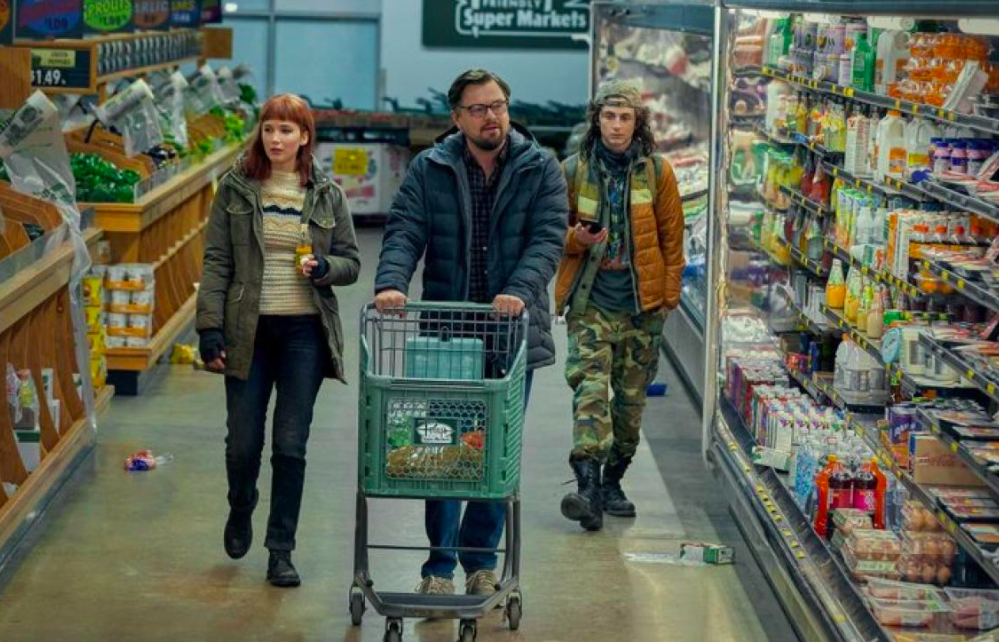
We know the stats. Young people across the globe, and here in Aus, care about climate change. We flock to the streets for protests, take care to recycle, and try to avoid plastics where we can. But have we gotten a bit complacent in our actions?
Remember the chokehold that Craig Reucassel’s War On Waste had on us as a nation? The episode where he demonstrated how 50,000 takeaway coffee cups – the amount our country consumed in 30 minutes – filled a tram, mobilising every man and his dog to get onto reusable cups. That one small action was adopted quickly to the point where a pastel frank green cup felt like the hottest accessory of 2017.
I’ll admit, I feel like I’ve kept up some good practices, but not adopted many new ones in recent years. And if you’re also feeling like it’s been a while since you’ve been shaken into new habits, then this article is for you. We spoke to Dr Simon Bradshaw, a researcher on climate science and impacts at the Climate Council, about what we can be doing to step up how we help the planet.
Understanding the situation
First things first. To work out how we can help, we’ve gotta get a handle on how the damage is being done.
P.TV: How are fossil fuels related to the climate crisis?
Dr Bradshaw: By burning fossil fuels, we are upsetting the delicate balance that has enabled human societies to flourish. More specifically, we are rapidly altering the carbon cycle – one of the key processes that enable life on earth. Carbon is constantly being cycled through the atmosphere, ocean, rocks and living organisms. By burning huge quantities of coal, oil and gas – which are carbon-rich deposits of decomposed organic matter that have built up over millions of years – we are releasing a whole lot of carbon into the atmosphere at once, in the form of carbon dioxide.
How much is Australia contributing to the global climate crisis?
Sadly, Australia’s contribution is far greater than many believe and what our relatively small population would suggest. Australia has only 0.3% of the world’s population but is directly responsible for around 1.3% of global emissions. This is because our emissions per person are very high compared to most of the rest of the world.
Moreover, this is before you take account of Australia’s enormous fossil fuel export industries. Once you factor in the emissions from the vast quantities of coal and gas that Australian mines are burned overseas, our true contribution to the global climate crisis becomes far greater.
But let’s not forget: being a major contributor to the crisis also means we can play a major part in its solutions. Australia has everything it needs to shift its own energy use beyond fossil fuels to renewable energy, while at the same time replacing its fossil fuel exports with clean exports. By doing so we can have a major positive impact on climate action globally.
What can we do?
Okay, so we’ve been using our green bags at Woolies, ditching meat on Mondays and recycling our soft plastics, but let’s get into the bigger stuff. No matter how much money we have, where we put it matters. And it makes a difference.
How can we build upon our basic habits to better help the planet?
So many of our life choices have an impact on the climate: what we get our energy from, what we eat, how we move around. Perhaps more importantly, how we use our voices and how we invest our money can ultimately have an even greater impact.
One of the most important things we can do is educate ourselves about what is at stake and what we need to do to get out of this mess. Climate change affects all of us, but its impacts are not felt equally. First Nations, young people, rural communities, and many other specific groups are disproportionately impacted as the world warms. Many of these communities are also at the forefront of driving solutions. So reading up on the science, as well as listening to stories and lived experiences of frontline communities, from the Pacific to Central Australia, is a great way to understand the reality of the climate crisis and what we can all be doing to drive solutions.
Once we have a basic understanding of how climate change affects all our lives, and the things we can all do to help drive solutions, we are also then well placed to have conversations with others and encourage them to take positive action as well.
What are some of the most impactful things individuals can do to reduce fossil fuels?
In truth, we need to focus on both our individual actions and what we can do to influence corporations and decision-makers. Both are important.
Being mindful of what we eat (in particular focusing on sustainable, local, plant-based food), and using public transport or walking/cycling can all reduce our personal fossil fuel consumption. What’s more, these choices can also greatly improve our quality of life.
Switching to a bank, mortgage provider and super fund that is investing in our renewable energy future, and has committed to putting zero money into fossil fuels, is one of the most effective things we can do as individuals to help drive stronger action on climate change.
Looking ahead
We’ve got to get our act together for the future. Dr Bradshaw says there is a simple truth that action leads to hope.
What would you like to see Aussies do going forward?
Australia has so much potential to lead when it comes to tackling climate change. We are one of the sunniest and windiest countries on the planet. We have the potential to not only transform our own economy but to help drive action far beyond our shores, whether that’s supplying renewable energy to the world or supporting our neighbours as they work to adapt to rising seas and other impacts of climate change. But right now our national leaders are dragging their heels and playing down both the threats and the opportunities.
The climate crisis is the defining challenge of our times. I’d like to see Australia really rising to the challenge, at every level of government, across the business community, and from the grassroots. We have everything we need. The true leaders – our young people, First Nations, and many local communities – are already showing us how it’s done. It’s time for us all to follow their lead.”
So, one thing we can all do today in the urgent fight against climate change is suss out where our money is going. If we currently have money sitting with banks, mortgage providers and super funds that invest in fossil fuels, we’re funding the wrong side of the fight. Moving that money can make a big difference.
If you’re ready to make a change now, find out more about Bank Australia’s clean money promise, here.



